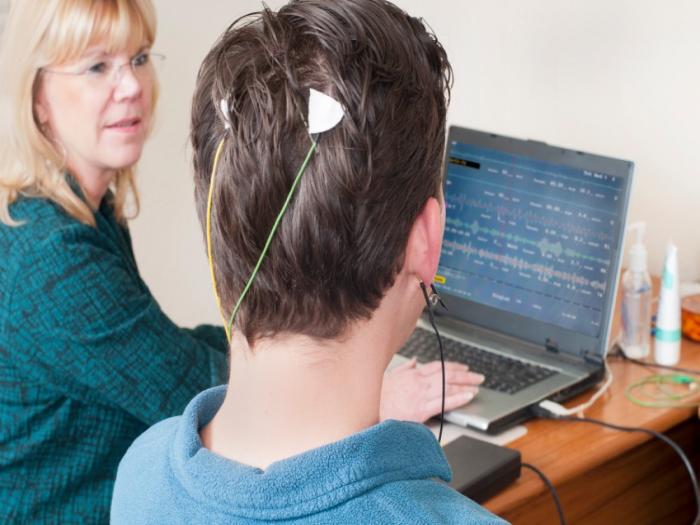

Experimental Psychology Career Path
All too often, people tend to confuse psychologists with psychiatrists. They picture a psychologist as someone sitting next to a patient on a couch, asking the patient to follow a watch with his or her eyes as it swings back and forth. This, of course, is understandable; after all, many psychologists do a majority of their work in a clinical setting. However, psychologists tend to focus their work more on general human behavior, rather than that of individual people.
%%linkad1%%
What is Experimental Psychology?
The field of psychology in general is very complex, given that it deals with an equally complex subject: the human mind. For years, the accepted school of thought was that psychology itself was far too vague of a field to ever have a need for well-defined research methods. Most believed that no two minds responded to external or internal stimuli in the same fashion. Thus, no methods could be created to accurately measure behavior, let alone attempt to predict it. However, early pioneers began to formulate theories based off of their observations. Further evaluation of those observations lead to the development of methods used to validate those theories. The development of these methods is the basis of experimental psychology.
Today, those working in experimental psychology jobs continue to focus on creating tests and experiments which allow theories to be tested and validated. As such, they work very little with patients in a clinical setting. Rather their work happens in the classroom and the lab, evaluating data from all of the various psychological disciplines, including:
- Child psychology
- Abnormal psychology
- Developmental psychology
- Cognitive psychology
- Social psychology
Undergraduate and Graduate Degree Programs
With experimental psychology being such a highly-specialized yet comprehensive field, it should come as little surprise to learn that few schools actually offer a dedicated experimental psychology undergraduate program. Rather, most of those who pursue such a career tend to focus their undergraduate studies on non-clinical psychology. As most of the jobs in experimental psychology require graduate studies, it’s recommended that you identify a particular graduate program that you wish to participate in early on in your educational career. Study the admission requirements to see exactly what that particular program is looking for, and tailor your undergraduate work to fulfill them.
Since experimental psychologists do not work in clinical settings, most graduate programs tend to look for applicants that have focused their coursework on data collection and analysis, understanding various research methods, and organizing data into papers and reports. Therefore, along with the psychology courses needed to satisfy program admission requirements, you may also want to include classes in science and statistics as part of your coursework. Consider meeting with a faculty member to express you interest in experimental psychology. As many of the psychologists working in academia do so because they too enjoy the research aspect of it, he or she may be willing to mentor and prepare you for your graduate studies. Many graduate courses will often select students based largely off of their shared interests with faculty members.
Once you’ve entered your graduate program, you can expect your coursework to be even more geared towards research methods. Most programs will concentrate on scientific philosophies such as intelligence measurement and research design. These classes are blended with psychology courses such as:
- Neuropsychology
- Cognitive nature
- Techniques for administering and evaluating psychological assessments
Most online programs related to experimental psychology are found at the graduate level. These courses are designed specifically for those students who’ve completed an undergraduate degree and are currently working in the fields of psychology or scientific research. As such, they typically don’t have any sort of practicum requirements. You can access the coursework and lectures at night when you’re not working. Again, expect a heavy emphasis on research. While you may be required to work collaboratively with other students, the online environment makes communication easy.
Careers in Experimental Psychology
What kind of careers will be awaiting you once you’ve completed your degree? The answer depends largely on where you want to work. Many experimental psychologists currently work in colleges and universities helping to support their colleagues through developing new research methods. However, that’s not to say that there aren’t jobs available in the public and private sectors. Government agencies will often employ experimental psychologists to develop assessments that assist social workers or those going through the criminal justice system. Large companies and corporations may also look to bring on experimental psychologists either full-time or as consultants to help develop employee wellness programs or create new human resources policies. They may also call in experimental psychologists to help establish testing standards to measure and evaluate consumer trends and patterns.
Given the evolution of experimental psychology from theoretical impossibility to practical practice, you can easily assume that the field will continue to change dramatically in the future. With this change may come an increase in the number of experimental psychology jobs and careers. If you want to help your contemporaries by developing the techniques that will allow them to better predict patterns of human behavior, a career in this field may be just right for you.
